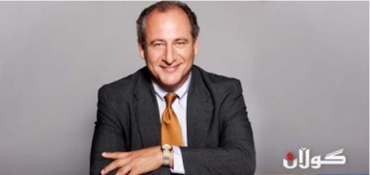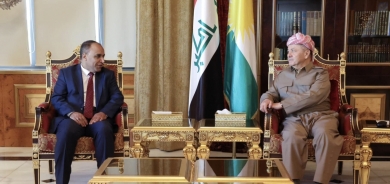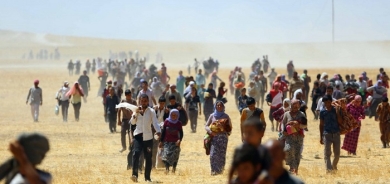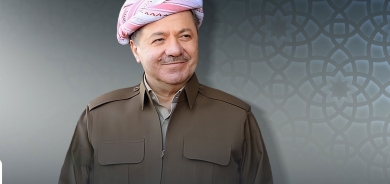David L. Phillips to Gulan: Iraqi Kurdistan is a model of democratic development compared to its neighbors.
May 22, 2013
Exclusive Interviews

Director of the Program on Peace-building and Rights at Columbia University’s Institute for the Study of Human RightsGulan: What is the purpose of your visit to Kurdistan and how do you see the situation here especially in Kirkuk?
Phillips: I made my first visit to Iraqi Kurdistan in January 1992. The purpose of my trip is to see old friends and measure the progress here.
Gulan: As you are working in the United States on the implementation of the Article 140, and you have participated in some conferences regarding this article, do you think that there is any hope for implementing the article now?
Phillips: There is a lot of progress in Kirkuk because of the good work of Governor Najmaldim Karim. Services are greatly expanded. Inter-communal relations are greatly improved. If the Iraqi government is committed to the rule of law, it will implement article 140. The constitution was negotiated between Iraqis and approved in a referendum. Baghdad cannot ignore commitments. Article 140 should be implemented so that Kirkuk’s status can be resolved.
Gulan: What will happen to Kirkuk if Article 140 is not implemented?
Phillips: Kirkuk’s status cannot stay in limbo forever. If Arabs in Kirkuk do not want to be part of Iraqi Kurdistan, that’s their choice. Kirkukis can negotiate a peaceful partition, so that Kirkuk City and most of the province can join Iraqi Kurdistan.
Gulan: As Iraq has been passing through a very difficult time and recently PM Nechirvan Baezani visited Baghdad and met PM Maliki, how do you interpret his visit to settle the negotiations?
Phillips: This is not the first time that Baghdad and the Kurdistan Regional Government have agreed on the details of cooperation. If Iraq falls apart, the Kurds cannot be blamed.
Gulan: But Kurds have no other options except negotiating with Baghdad?
Phillips: The Kurds have strategic partnerships with Baghdad, Ankara, and Tehran. They are also developing their local economy. We all want Iraq to succeed as a federal, pluralist and multi-ethnic state. However, the civil war between Sunni and the Shia is intensifying. Why would the Kurds want to be part of a failed state? Why should they be citizens of a country with such violence and conflict?
Gulan: Kurdistan has already become part of the chaotic situation in Iraq. Our aim is to preserve the stability; can we keep the stability in Kurdistan by negotiations?
Phillips: The Helsinki principles of the 1985 Helsinki Final Act allow borders to be changed through mutual agreement. If the Kurds and the Arabs decide they don’t want to live in the same state, then they have the right to negotiate a peaceful separation.
Gulan: Do you think that the United States will allow this to happen as it wants Iraq to be united?
Phillips: The United States wants Iraq to survive within its current frontiers. It has a Baghdad-first policy. I don’t think this is the best approach. The United States has only one friend in Iraq -- the Iraqi Kurds.
Gulan: What is Turkey’s view?
Turkey has recognized the economic and security benefits of cooperation with the KRG. If Iraqi Kurdistan separates from Iraq, the separation has to occur with Turkey's agreement and ultimately with Turkey's protection. It is in Turkey's interest to have a stable, peaceful and prosperous neighbor which serves its energy security.
Gulan: But we aim at having a direct relation with Washington. Do you think this is a dream or it can come to reality?
Phillips: When I first came to Iraqi Kurdistan in 1992, I slept in the building that had been hit by missile. The roof and one wall had collapsed. There was no heat, water and electricity. Now look at conditions in Iraqi Kurdsitan. Conditions change over time.
Gulan: There are many American big companies in Kurdistan Region including ExxonMobil and others. What does this mean for Kurdistan?
Phillips: Kurdistan is open for business. U.S. companies want to be stakeholders in this prosperous region, as it should be.
Gulan: but in terms of politics we do not see the same level of concern of the United States?
Phillips: Given the historical ties between the United States and Kurdistan, the United States should do more to help Iraqi Kurdistan. The U.S. worked with Turkey to assist refugees in 1991. It enforced a no-fly-zone through Operation Northern Watch for eleven years from 1992 to 2003. It worked closely with the Peshmarga to help liberate Iraq from Saddam Hussein. The United States should not have bandoned negotiations on a status forces agreement with Baghdad, relinquishing its leverage in Iraq. Going forward, the United States should recognize its historic ties with the Iraqi Kurds, and preserve those ties.
Gulan: Stability in Iraq will also serve the United States' interest. The Obama administration is more concerned about the facts here rather than democracy in Iraq?
Phillips: The Obama administration is committed to Iraq's sovereignty and a federal, democratic Republic of Iraq. So is the KRG. However, Washington is wary of Turkey's rapprochement with Iraqi Kurdistan because it fears this encourages the Kurdistan Region to distance itself from Baghdad. These are not mutually exclusive options; it is possible to have both. Turkey and Kurdistan Region can cooperate and be partners. Iraq can function as a federal state if Baghdad implements the constitution. Maliki is destroying Iraq.
Gulan: As you are also aware of the internal affair of Kurdistan Region, PDK and PUK are committed to their strategic agreement. In your opinion, to what extent complying with this agreement is important for Kurdistan Region?
Phillps: Iraqi Kurds should stand together and serve Iraqi Kurdistan based on a common vision. This has been the case during recent years, and it should continue.
Gulan: Can we say that PDK and PUK have been able to build a model of nation building in the Middle East?
Phillips: The extent of democratic development in Iraqi Kurdistan is much greater than any Arab country in the region. Just look at the neighborhood torn by conflict and civil war. Iraqi Kurdistan is a model of democratic development compared to its neighbors.
Gulan: As you see there is now an opposition in Kurdistan which has 38 seats in parliament and there is not such an opposition in the regional countries, how do you see the treatment of both parties and the government with the opposition?
Phillips: It is good to have opposition parties. They require transparency and accountability. They demand the rule of law and good governance.
Gulan: What does Turkey mean to Kurdistan Region?
Phillips: Turkey and the KRG are strategic partners. They are friends. They have common security and economic interests.
Gulan: Strategic partners mean a lot. Is it only in terms of economy alone or both economy and politics?
Phillips: It is both. Iraqi Kurdistan is fundamentally pro-Western. Its access to the West goes through Turkey. Iraqi Kurds and Turks have shared values and ambitions. Beyond the energy sector, there’s also opportunity for cooperation in other fields such as education.
Gulan: As Kurdistan Region exporting oil through Turkey, yet the central government in Baghdad opposes this. Do you think KRG individually can act this way?
Phillips: The KRG has every right to develop new energy resources and transport them to markets. Oil fields that were in existence prior to the constitution are treated differently. They are considered a national asset rather than the asset of Iraqi Kurdistan. The KRG has taken a very balanced and constructive approach to its energy development.
Gulan: Do you think the progress in the relations between KRG and Turkey has resulted in developing peace in the area?
Philips: Of course it has. Look at Turkey’s peace process with the PKK. The KRG has helped move this process forward.
Gulan: As we met with Hussein Celik, the deputy of Erdogan, last week in Erbil, he thinks that the PKK issue is not a Kurdish issue but rather it is a terrorist problem. How do you see the PKK issue in Turkey?
Phillips: The PKK has been struggling for democratic and cultural rights on behalf of 20 million Kurds in Turkey. Now circumstances have changed. Ankara has made the PKK a peace partner and is negotiating directly with Abdullah Ocalan. With Ankara’s concurrence, the PKK should be removed from the U.S. list of foreign terrorist organizations at some strategic point in the peace process. Delisting the PKK would also open the door to contact with the PYD, which would strengthen the Syrian opposition.
Gulan: But still Turkey will not remove PKK from the terrorist list?
Phillips: The U.S. and EU will follow Turkey's lead. Turkey cannot solve its Kurdish problem without negotiating the details of sustainable peace with the PKK. Part of that negotiation will involve removing the PKK from the terrorist list.
Gulan: We have heard from people around Erdogan saying that they do not accept partners. They think that this is a constitutional issue and does not need a partner.
Phillips: Ankara cannot make peace unilaterally. There are very difficult issues on the table: disarmament, demobilization, and reintegration; amnesty arrangements; justice and accountability. The Turkish government cannot impose its views on the PKK or its supporters.
Gulan: Who is the peace partner?
Phillips: Hakan Fidan, the head of Turkey’s intelligence agency (MIT), is engaged in a regular dialogue with Ocalan. He is acting on behalf of Prime Minister Erdogan. Erdogan and Ocalan are peace partners.
Gulan: Can Ocalan be a partner from a prison?
Phillips: The conditions of detention for Ocalan will change during the course of these political talks.
Gulan: But before starting the process, do not you think that the PKK should be removed from a terrorist list and Ocalan released?
Phillips: The PKK will be removed from the terrorist list and Ocalan's situation will be addressed during the political dialogue. I don’t think Ankara is going to front-load the process. They will make it a reward for progress.
Gulan: In recent years we witnessed a big change in the idea and opinion of the AKP party. To what extent do you think they will also change their mind for solving a Kurdish question peacefully?
Phillips: They have already made a lot of progress. But there must be a full and final peace agreement, otherwise violent conflict can resume and be even more deadly.
Gulan: To what extent will KRG be able to support a more strategic peace process especially the role of President Massoud Barzani and PM Nechirvan Barzani?
Phillips: We would not have gotten to this point without their constructive participation. I’m sure they will continue to advise all parties in order to advance the goal of regional peace and stability.
Gulan: Your last words?
Phillips: I am very pleased to visit Kurdistan, meet old friends, and see dramatic progress. I have been visiting Iraqi Kurdistan more than two decades. This region was once a war-zone. Now it’s a boom town.















